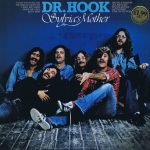“𝙏𝙝𝙚 𝙉𝙞𝙜𝙝𝙩 𝙏𝙝𝙚𝙮 𝘿𝙧𝙤𝙫𝙚 𝙊𝙡𝙙 𝘿𝙞𝙭𝙞𝙚 𝘿𝙤𝙬𝙣” – 𝙅𝙤𝙖𝙣 𝘽𝙖𝙚𝙯’𝙨

Joan Baez’s rendition of “The Night They Drove Old Dixie Down” is a powerful and evocative cover of the song written by Robbie Robertson and originally performed by The Band. Released in 1971 on her album Blessed Are…, Baez’s version of the song is notable for its emotional depth and her distinctive vocal style.
“The Night They Drove Old Dixie Down” tells the story of the economic and social struggles faced by a Southern family after the American Civil War. The song is narrated from the perspective of Virgil Caine, a fictional character who reflects on the hardships and decline experienced in the South following the end of the Civil War. The lyrics address themes of poverty, resilience, and the socio-economic impact of the post-war era on Southern communities.
“The Night They Drove Old Dixie Down” tells the story of the economic and social struggles faced by a Southern family after the American Civil War. The song is narrated from the perspective of Virgil Caine, a fictional character who reflects on the hardships and decline experienced in the South following the end of the Civil War. The lyrics address themes of poverty, resilience, and the socio-economic impact of the post-war era on Southern communities.

Joan Baez’s version of the song retains the folk and Americana influences of the original while adding her own touch. The arrangement features acoustic instrumentation, including guitar and mandolin, and is characterized by Baez’s poignant and soulful vocal delivery. Her interpretation brings a somber and reflective quality to the song, enhancing its narrative depth and emotional resonance.
Joan Baez’s cover of “The Night They Drove Old Dixie Down” was well-received and praised for its heartfelt performance and faithful rendition of the original. The song showcases Baez’s ability to convey complex emotions and historical themes through her music.
Baez’s version of the song has become a notable part of her discography and is often highlighted for its storytelling and historical context. Her interpretation contributes to the song’s legacy as a poignant reflection on the American South’s post-Civil War struggles and continues to resonate with listeners for its historical and emotional impact.











